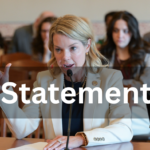By State Senator Erica Harriss (56th-Glen Carbon)
It was a costly week for Illinois taxpayers. As the General Assembly wrapped up its fall Veto Session just before 5 a.m. on Halloween, the Majority Party pushed through a series of proposals that will make life more expensive for Illinois families, from higher energy bills to new taxes and reduced investment in downstate infrastructure. These massive bills passed with almost entirely Democratic legislator support and little to no Republican votes.
In the wee hours of the morning on the final day, I voted no on these bills because they make our state less affordable and less accountable. Illinois families deserve relief, not more government-driven cost increases.
Utility costs are the number one concern I hear from families and small businesses across my district. Instead of addressing those rising costs, the Majority passed an “Energy Omnibus Bill” that will only make things worse. This sweeping measure removes critical consumer protections and eliminates limits on how much energy rates can increase, paving the way for an estimated $8 billion hike in power bills across Illinois. It gives unelected bureaucrats the ability to raise rates without oversight while directing billions toward special-interest subsidies and unproven technologies.
The measure also strips away local control, allowing large battery storage facilities to be built within 150 feet of a home or farm with no recourse for local governments or residents to object.
Families are already stretched thin. At a time when we should be working to make energy more reliable and affordable, this legislation does the opposite. It increases costs, removes safeguards, and fails to deliver meaningful relief. That is why I voted no.
Another major disappointment was the late-night passage of a massive transit proposal that redirects hundreds of millions away from downstate infrastructure. Under this plan, 85 percent of the sales tax on motor fuel will now go to a new Northern Transit Authority, leaving just 15 percent for downstate transit. That means downstate communities could lose up to $500 million which would have gone toward maintaining and improving local roads and bridges.
I voted no because this bill punishes our communities to bail out Chicago’s failing transit system. Downstate families should not have to pay more and get less in return. The good news is that we were able to stop the proposed $1.50 delivery tax, at least for now. But this fight underscores the need for fairness in how our state invests taxpayer dollars.
During the final hours of session, in the middle of the night, the legislature also passed a bill to legalize assisted suicide. I voted no because it is wrong for Illinois. Legalizing assisted suicide would create financial incentives for death, widen health disparities, and pressure vulnerable individuals, including the elderly, the disabled, and those with chronic illnesses, to end their lives. It also forces medical professionals to abandon their commitment to healing and protecting life. Illinois should lead with compassion and care, not policies that devalue life. We must focus on improving access to palliative care, mental health services, and hospice programs that uphold human dignity.
Another quiet but costly measure advanced this session is the proposal to decouple Illinois from key federal tax relief provisions that help small businesses recover and grow. This plan amounts to another tax hike on employers at a time when Illinois already has one of the highest unemployment rates in the country. While other states are cutting taxes to attract investment, Illinois is sending the opposite message: that we are closed for business.
From energy hikes to tax grabs, the pattern in Springfield is clear. Instead of working together to make life more affordable, the Democratic Party continues to raise costs and shift resources away from hardworking families. That is not fiscal responsibility. That is a betrayal of trust.
I will keep standing up for taxpayers and fighting for policies that make Illinois more affordable, competitive, and compassionate. We can build a stronger state, but only if we put people before politics and restore common sense to Springfield.






